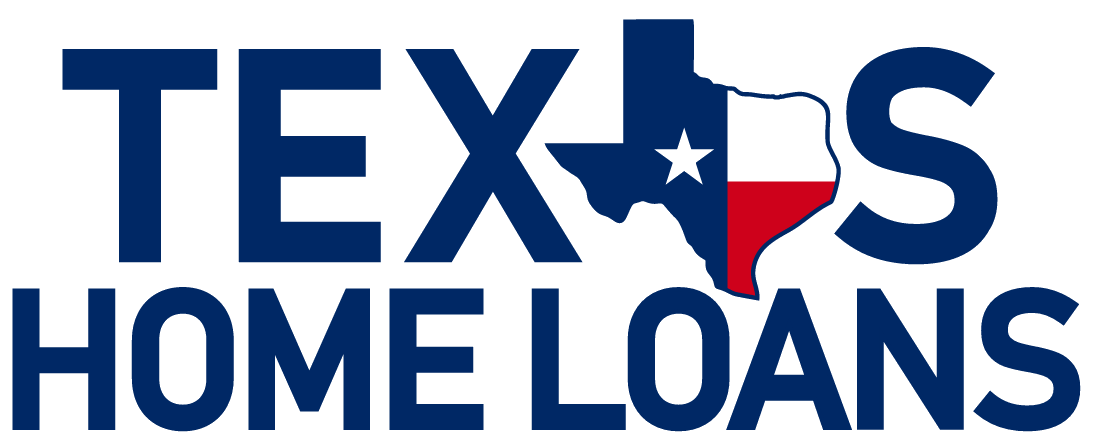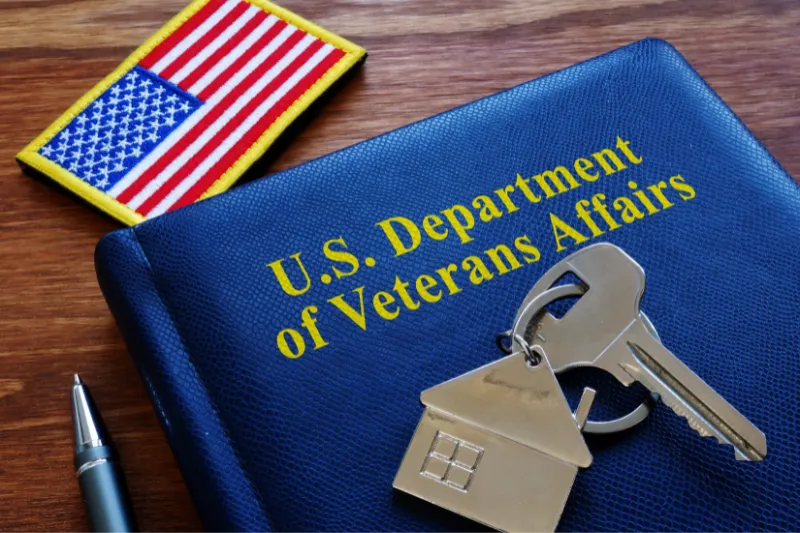When it comes to financing a home in Texas, I've seen many buyers struggle with…
Texas VA Loan Closing Costs Explained
When buying a house, know all closing costs. These fees complete a property deal and accumulate fast. Texas veterans using VA loans must grasp the specific closing costs. This blog explains VA loan closing costs in Texas, compares to traditional loans, and gives closing process tips.
VA Loan Closing Costs in Texas
Closing costs are an unavoidable part of the home buying process, and the same goes for VA loans in Texas. However, the closing costs for VA loans can be different from those of conventional loans. Understanding the specifics of closing costs on a VA loan in Texas is crucial to avoid any surprises and ensure a smooth home purchase journey.
What are closing costs?
Closing costs on a home loan encompass a wide range of fees, charges, and expenses necessary to complete the real estate transaction. They typically include costs such as appraisal fees, attorney fees, credit report fees, title insurance, loan origination fees, and more. These costs can vary depending on the location, type of loan, and other factors. It’s important to note that closing costs are in addition to the down payment on the home. Understanding the breakdown of closing costs can help buyers budget effectively and plan for the total amount needed to close the loan.
How closing costs relate to a VA loan
Closing costs on a VA loan can be different from those of conventional loans, primarily because of the unique benefits that come with a VA loan. For example, in some cases, closing costs can be rolled into the loan amount, reducing the upfront payment requirements. However, not all closing costs can be included in a VA loan, and it’s important for borrowers to understand which costs can be rolled into the loan and which ones need to be paid upfront. Working with a VA-approved lender can provide valuable insights into the closing costs specific to a VA loan in Texas and help veterans navigate the loan process smoothly.
The Breakdown of Texas VA Loan Closing Costs
Now let’s take a closer look at the breakdown of closing costs on a VA loan in Texas. Understanding the different components of closing costs can help borrowers estimate the total amount they will need to pay, and plan their finances accordingly.
VA mortgage and lender fees
When delving into VA loan closing costs in Texas, it’s crucial to understand the realm of VA mortgage and lender fees. These encompass the various charges associated with services provided by the lender, including the significant VA funding fee. Familiarizing yourself with these fees beforehand is key for VA borrowers, aiding in financial readiness and planning. By comprehending these upfront costs, individuals can navigate the complexities of the mortgage process more effectively.
Third-party fees
When considering Texas VA loan closing costs, it’s essential to account for third-party fees. These charges, originating from entities independent of the mortgage lender, play a significant role in the overall expenses. Third-party services such as appraisal and title insurance are encompassed within this category. Veterans embarking on a home purchase journey must grasp the nature of these fees to accurately estimate costs. Strategic management of third-party fees not only facilitates financial planning but also paves the way for a successful property acquisition.
Closing Costs Compared: VA vs Traditional in Texas
Now, let’s compare the closing costs on VA loans with those of conventional loans in Texas. Understanding the key differences can help veterans make informed decisions about which loan type is the best fit for their needs.
Key differences to consider
When considering VA loan closing costs versus traditional loans, important differences emerge. VA loans commonly offer lower interest rates, contrasting with conventional loan terms. Notably, traditional loan closing costs can encompass expenses not present in VA loan structures. VA loans might restrict specific fees such as broker charges or prepayment penalties, setting them apart. Understanding these distinctions is pivotal for informed decision-making during the borrowing process. Seeking guidance from a financial advisor can aid in aligning loan choices with individual financial objectives.
Pros and cons of both options
When considering financing options, VA loans stand out for eligible borrowers with no down payment requirements. Conversely, traditional loans offer more flexibility regarding property types and loan amounts. Active-duty service members and veterans often benefit from favorable terms in VA loans. It’s crucial to assess the advantages and disadvantages of each loan type thoroughly. Seeking guidance from a qualified lender can help determine the best financing option tailored to individual needs.
Typical VA Closing Costs in Texas
Now, let’s delve into the typical closing costs on a VA loan in Texas. Understanding the factors that influence the cost and the varying costs associated with a VA loan in Texas can help veterans navigate the home buying process with confidence.
Factors influencing the cost
Various elements such as property location and loan amount can impact VA closing costs. The type of loan and interest rate play significant roles in determining the total VA closing costs. Understanding the influence of funding fees on VA closing costs is crucial. Seller concessions in Texas VA loans may affect the overall closing expenses, while the consideration of discount points can potentially reduce VA closing costs for borrowers.
Understanding the varying costs
Understanding the varying costs associated with a VA loan is crucial for borrowers. Factors like title insurance can impact VA closing costs significantly. VA appraisal costs are an essential component of closing costs and can vary based on the property’s value. Delving into how credit reports influence VA closing costs provides valuable insights for financial planning. Homeowners insurance is another factor affecting closing costs that necessitates careful consideration. Exploring the role of attorney fees in VA closing costs can help borrowers effectively manage their finances.
Ways to Manage Your VA Loan Closing Costs
Managing closing costs on a VA loan in Texas can be intimidating, but with the right strategies, veterans can navigate the process more effectively. Let’s explore some ways to manage VA loan closing costs and potentially reduce the financial burden.
Seller concessions
One way to manage VA loan closing costs is through seller concessions. Seller concessions occur when the seller agrees to cover a portion of the buyer’s closing costs. This can help reduce the amount of money the veteran needs to bring to the closing table. However, it’s important to note that seller concessions are typically limited to a certain percentage of the purchase price, and not all sellers may be willing to offer concessions. Negotiating with the seller and working with a real estate agent experienced in VA loans in Texas can increase the chances of securing seller concessions and reducing the upfront costs for veterans.
Financing closing costs
Another option to manage closing costs on a VA loan in Texas is by financing the costs. Veterans can include the closing costs in the total loan amount, effectively rolling the costs into the loan. This can help veterans spread out the payments over the life of the loan, reducing the immediate financial strain of the closing costs. However, including the closing costs in the loan amount can impact the total loan balance, and veterans should carefully consider the long-term financial implications before making this decision. Consulting with a loan officer familiar with VA loans can provide guidance on the best approach to financing the closing costs while considering the individual financial situation.
Key Considerations for Veterans Purchasing a Home in Texas
When it comes to purchasing a home in Texas, veterans have specific considerations unique to their status. Let’s explore the benefits of VA loans for veterans and the eligibility criteria they need to fulfill.
Benefits of VA loans for veterans
For veterans, VA loans offer favorable terms and conditions, including competitive rates and lower interest rates. One significant benefit is the absence of a required down payment for eligible veterans, making homeownership more accessible. The VA home loan program provides vital support, granting veterans the flexibility they need. These loans cater specifically to military service members, recognizing their contributions and providing financial advantages that ease the path to homeownership.
Eligibility criteria for veterans
To qualify for a VA loan, veterans need to satisfy specific eligibility prerequisites. Factors such as length of service and duty status play a crucial role in determining eligibility. Understanding and meeting these criteria are essential for veterans to assess their qualification for a VA loan tailored to support service members and veterans. Compliance with the established eligibility standards is fundamental for the successful approval of VA loans. By adhering to these criteria, eligible VA borrowers can benefit from the advantages offered by the Department of Veterans Affairs through the VA home loan program, including lower interest rates, competitive rates, and total closing costs support.
Ethical and Compliance Considerations for VA Loans
When it comes to VA loans, ethical and compliance considerations play a crucial role. Lenders, loan officers, and other parties involved in the loan process must adhere to industry compliance standards and avoid sensitive or regulated topics. Let’s explore the importance of maintaining compliance in the VA loan industry and how to navigate potential challenges.
Ensuring industry compliance standards
Following industry compliance guidelines is essential for lenders and loan officers in the VA loan industry. Compliance helps ensure that all loan processes, disclosures, and actions are in accordance with the guidelines set by the VA. By adhering to these guidelines, lenders can maintain the integrity of the VA loan program, protecting both borrowers and the reputation of the industry. Regular audits and training sessions can help lenders and loan officers stay up-to-date with the latest compliance standards and regulations in the VA loan industry. It’s crucial for veterans in Texas to work with reputable lenders who prioritize compliance to navigate the loan process with confidence.
Avoiding sensitive or regulated topics
When working with veterans in Texas, it’s important to be mindful of sensitive or regulated topics. Loan officers and lenders should steer clear of discussions or practices that might be considered sensitive, discriminatory, or in violation of any regulations. This includes avoiding topics related to race, religion, age, gender, or any other protected characteristics during the loan process. Sensitivity training can help loan officers and lenders navigate potentially challenging conversations, promote inclusivity, and build positive relationships with borrowers. Open dialogue, respectful communication, and a commitment to compliance can help veterans in Texas feel supported and empowered throughout the loan process.
Avoiding Common Mistakes with VA Loan Closing Costs
Understanding the intricacies of closing costs is vital for a seamless home purchase journey. Thorough preparation is key to sidestepping unforeseen financial burdens at closing. Carefully examining all closing paperwork can avert costly mistakes. It’s advisable to clarify any ambiguous terms or fees associated with closing costs proactively. Avoiding any sudden modifications that could disrupt the loan process as a whole is prudent. By staying informed and attentive throughout the closing process, borrowers can navigate VA loan closing costs in Texas successfully.
Can closing costs be rolled into a VA loan in Texas?
One of the common misconceptions about VA loans in Texas is whether closing costs can be rolled into the loan amount. The answer is yes, closing costs can be rolled into a VA loan, allowing veterans to include these costs in the overall loan balance. Rolling closing costs into the loan can help reduce the immediate out-of-pocket expenses for veterans during the closing process. However, it’s important to note that including closing costs in the loan amount can impact the total loan balance, potentially resulting in higher monthly payments or a longer loan term. Veterans should carefully consider the long-term financial implications and consult with their lender to understand the pros and cons of rolling closing costs into their VA loan in Texas.
Frequently Asked Questions
What are typical closing costs associated with a Texas VA loan?
Closing costs for a Texas VA loan typically include origination, appraisal, and recording fees. Additionally, expenses like title insurance, credit reports, and discount points should be considered. Understanding the VA funding fee specific to these loans is crucial before finalizing the deal.
Are there any specific regulations or requirements for VA loan closing costs in Texas?
VA loans in Texas come with specific regulations dictating allowable closing costs for veterans. Sellers can cover up to 4% of these costs. Typical fees such as appraisals, origination, and recordings apply. Texans should be well-versed in the rules governing VA loan closing expenses.
Can VA loan closing costs be negotiated or reduced?
Negotiating VA loan closing costs is possible to a certain extent. Sellers or lenders may cover some costs, and borrowers can opt for a “no-closing-cost” VA loan. It’s crucial to discuss options with your lender and real estate agent.
Conclusion
In summary, it’s important for veterans in Texas to understand VA loan closing costs. Knowing fees breakdown and managing costs helps make informed decisions. Comparing VA with traditional loans and weighing pros and cons aids in choosing wisely. Veterans should grasp eligibility rules and ethical aspects when selecting a VA loan. Avoiding errors and understanding regulations assist veterans in the home buying process. This information enables veterans to make wise financial choices for their dream home.






